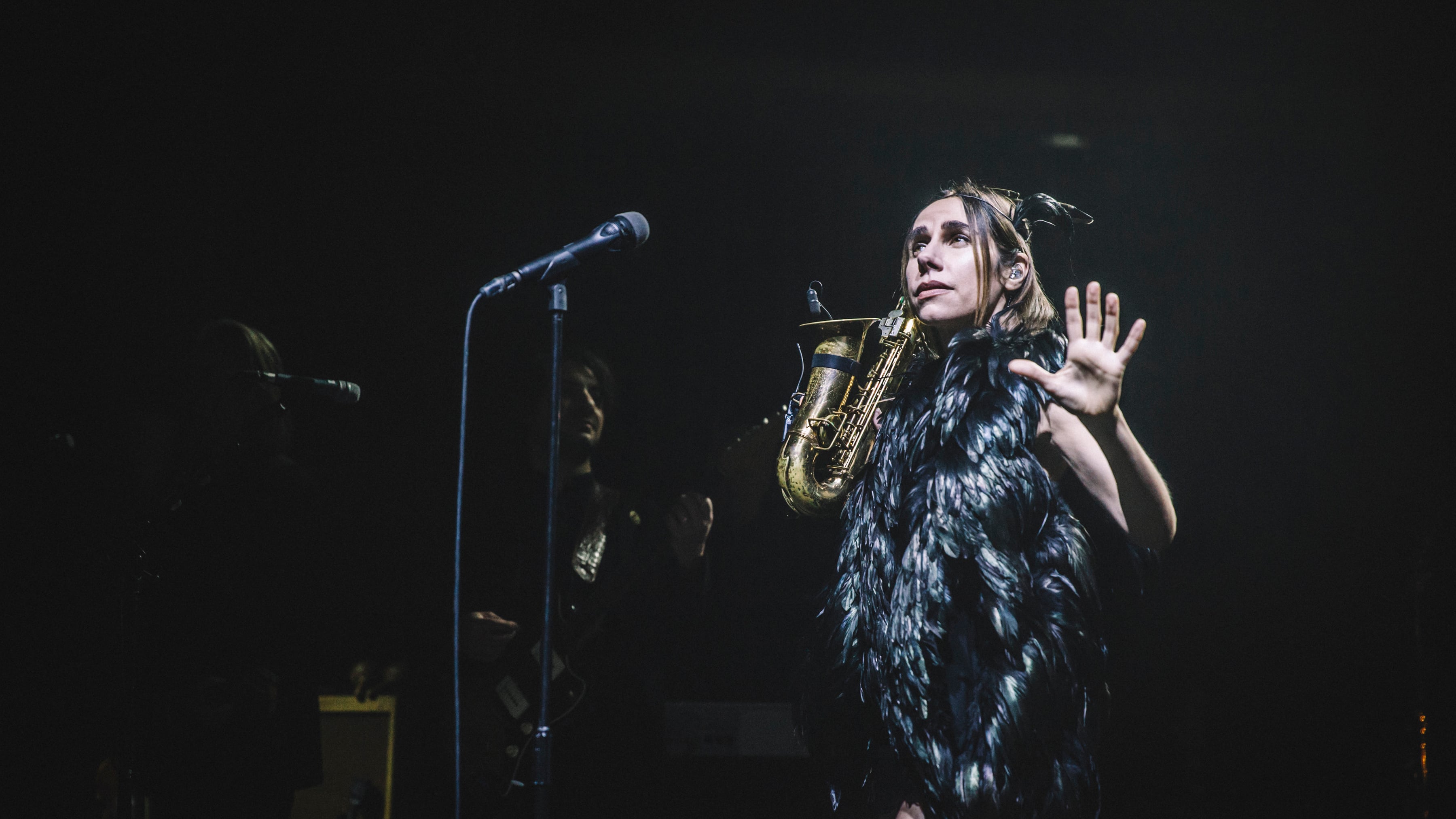Leave it to PJ Harvey to roll into her first proper Portland show in over a decade fronting a nine-piece gothic second-line Spaghetti Western cantina band while dressed like a blackbird on its way to the Met Gala. No one would've predicted it, which is precisely why she was bound to conceive of it. After a quarter-century of upending expectations, evolving from alt-rock scuzz-queen to art-rock sorceress, Harvey still has no intention of going "back to basics" or re-examining her legacy, like some other British acts we know. And acclaimed as she is, her set at Crystal Ballroom last night showed she probably isn't exalted enough for it.
It was dramatic from the onset. Entering as a procession of brass and percussion, her band of alternately bald and greying dudes—including longtime collaborator John Parish, Mick Harvey of the Bad Seeds (no relation) and Queens of the Stone Age sideman Alain Johannes—arranged themselves onstage one by one, with Harvey, wearing a feathered vest and brandishing a saxophone, initially taking position alongside the other horn players. When she finally stepped up to the mic, she moved deliberately, illustrating the lyrics by slicing the air with her hands or grabbing at invisible orbs. Other than thanking the audience and introducing the band, she didn't speak. As a "rock show," it was controlled, perhaps, to a fault. But as theater, it was mesmerizing; you've never heard a less-chatty Portland crowd.
Approximately half the set was taken up by songs from her great—if occasionally problematic—2016 album, The Hope Six Demolition Project, a record of garage-rock propulsion delivered via folk-jazz instrumentation. Most veteran artists couldn't get away with playing that much new stuff, but songs like sweeping "The Wheel" and the shuddering "Ministry of Defence" received some of the night's loudest crowd reactions.
What was most interesting, though, was seeing how the unusual instrumental lineup transformed her older material. A stretch of songs from her previous record, Let England Shake, took on spookier dimensions, like something you'd hear at a border-town burlesque bar owned by David Lynch. "Down by the Water," perhaps her biggest "hit," if that word even applies, somehow sounded even darker and dirgier than the recorded version. Most thrilling was a clattering junk-punk rendition of early thrasher "50 Ft. Queenie," with Harvey loosening up enough on the practiced gesticulations to bust out a sly shoulder shimmy. And after spending the evening mostly working her pristine upper register, she revisited the moaning vibrato of 1995's "To Bring You My Love," one of her most visceral vocal performances, which here trailed out on a chilling saxophone coda.
In all that she does, though, no the matter the form, it always go back to the blues. So it made sense that Harvey would end singing "Wade in the Water" at the front of the stage, with the whole band joining in. She'd return to perform her own sort of spiritual, "Is This Desire," before vanishing from view again, leaving the other musicians to receive the ovation. A mysterious, unpredictable exit—how very PJ Harvey of her.
All photos by Samuel Gehrke.
0 of 11












